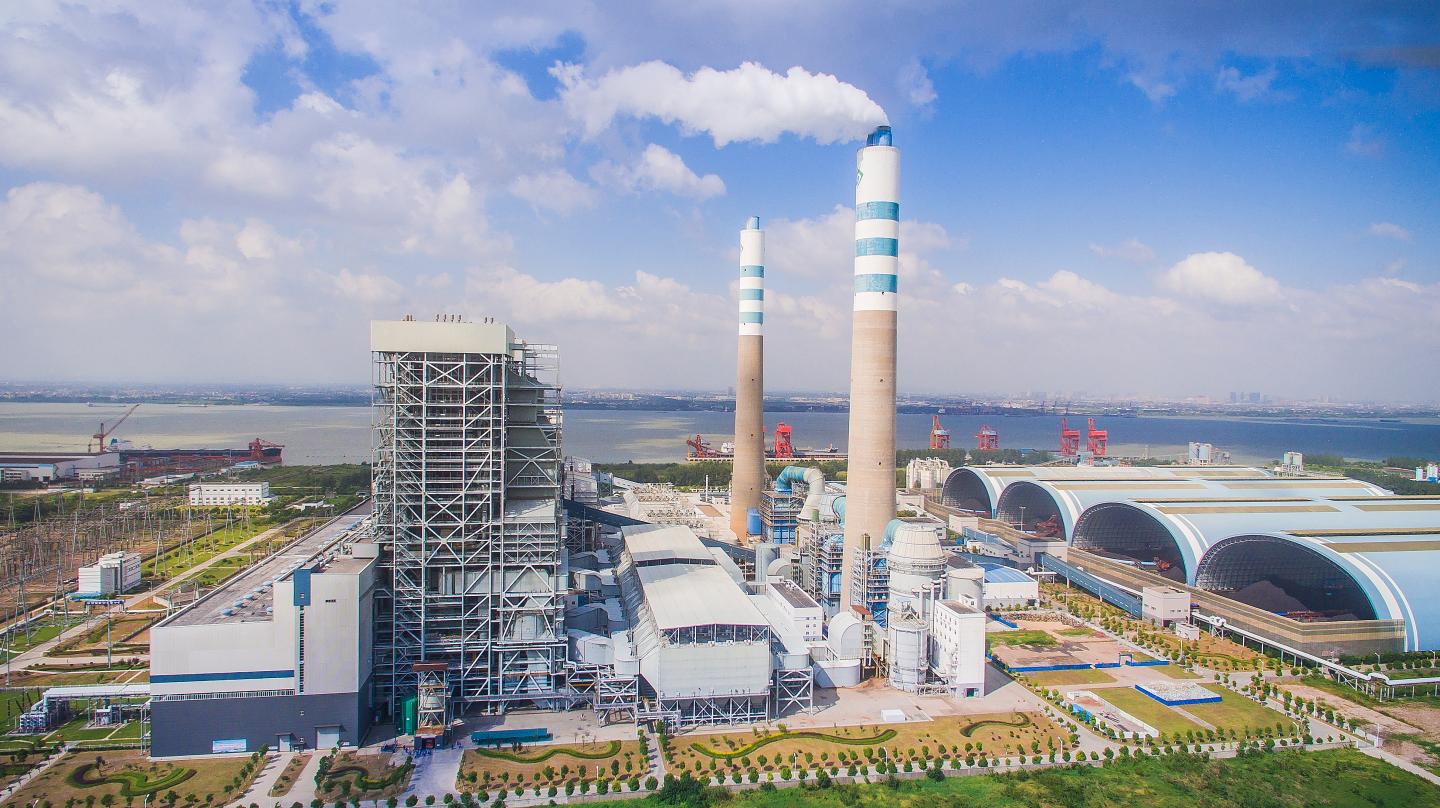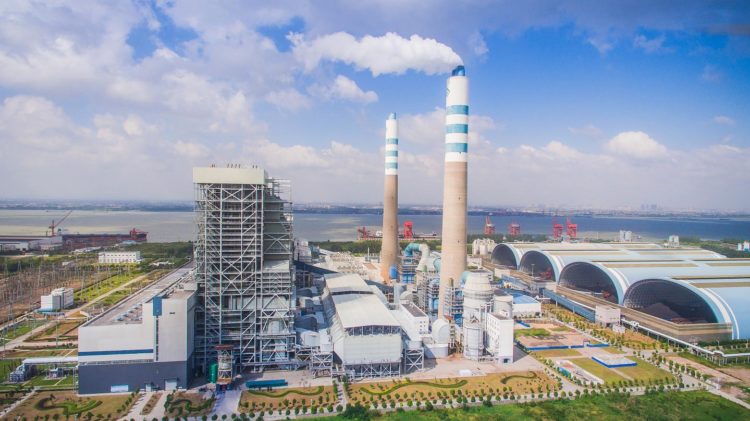
Credit: Ling Tang, Beijing University of Chemical Technology and Beihang University; Jiabao Qu, Ministry of Environmental Protection and HeBei University of Science and Technology; Zhifu Mi, UCL; Xin Bo, Ministry of…
Polluting emissions from Chinese thermal power plants declined significantly between 2014 and 2017, according to research involving UCL.
The reductions are important in helping to control China’s national emissions which could lead to an improvement in air quality and considerable health benefits.
A team of experts from the UK and China analysed emissions from coal, oil, natural gas and biomass power plants, with a focus on coal-fired power plants as the major contributors to ambient air pollution.
The study, published today in Nature Energy, analysed data from 2014, when China introduced the ambitious Ultra-Low Emissions (ULE) Standards Policy for renovating coal-fired power stations to limit air pollutant emissions, to 2017.
The team found that between 2014 and 2017, China’s annual power plant emissions of sulphur dioxide, nitrogen oxide and particulate matter dropped by 65%, 60% and 72% each year respectively from 2.21, 3.11 and 0.52 million tonnes in 2014 to 0.77, 1.26 and 0.14 million tonnes in 2017, which is in compliance with ULE standards.
This means that China looks to be on track to further reduce its emissions if all thermal power plants meet the ULE standards by 2020. These standards aim to limit the sulphur dioxide, nitrogen oxide and particulate matter emissions to 35, 50 and 10 milligrams per cubic metre respectively.
UCL co-author Dr Zhifu Mi (UCL Bartlett School of Construction and Project Management) said: “This is encouraging news for China, as well as other countries wishing to reduce their power emissions. Thermal power plants combusting coal, oil, natural gas and biomass are one of the major contributors to global air pollution.
“These significant emission reductions demonstrate the technical and economic feasibility of controlling emissions from power plants to reach ultra-low levels, which is an important step towards reducing the number of deaths attributable to air pollution.”
The study shows that previous methods of estimating Chinese power emissions overestimated numbers by at least 18%, and in some cases up to 92%. This is because previous research was carried out using ex-ante studies – estimations made ahead of the introduction of ULE standards – which looked at how the standards might affect emissions based on assumptions of changes in emission concentrations.
The research is the first to use data on emission concentrations collected by China’s Continuous Emission Monitoring Systems network (CEMS) which covers 96-98% of Chinese thermal power capacity.
The team constructed a nationwide emissions dataset – the China Emissions Accounts for Power Plants (CEAP) – based on data collected from the CEMS network between 2014 and 2017.
CEAP is now publicly available and continues to present, organise and analyse data from the network. This gives accurate results for each power plant as well as real-time results on an hourly frequency.
“With coal being the most widely-used fuel in China, cutting the number of thermal power plants within a short timeframe would be challenging. The results of this research are encouraging in demonstrating that coal can be used in a much cleaner way to generate electricity,” concluded Dr Mi.
###
The research was in collaboration with Beijing University of Chemical Technology, Beihang University, the Ministry of Environmental Protection (Beijing), HeBei University of Science and Technology, the University of Science and Technology (Beijing), Xi’an Jiaotong University, the University of Cambridge and the Chinese Academy of Sciences (Beijing). It was funded by grants from the National Science Foundation for Outstanding Young Scholars, the National Programme for Support of Top Notch Young Professionals and the National Research Programme for Key Issues in Air Pollution Control.
Notes to Editors
For more information or to speak to the researchers involved, please contact
Kate Corry, UCL Media Relations. T: +44 (0)20 3108 6995, E: [email protected]
Ling Tang, Beijing University of Chemical Technology and Beihang University; Jiabao Qu, Ministry of Environmental Protection and HeBei University of Science and Technology; Zhifu Mi, UCL; Xin Bo, Ministry of Environmental Protection and the University of Science and Technology; Xiangyu Chang, Xi’an Jiaotong University; Laura Diaz Anadon, University of Cambridge; Shouyang Wang, Chinese Academy of Sciences; Xiaoda Xue, Beihang University; Shibei Li, Ministry of Environmental Protection; Xin Wang, Ministry of Environmental Protection, Xiaohong Zhao; Ministry of Environmental Protection.
Substantial emission reductions from Chinese power plants after the introduction of ultra-low emissions standards will be published in Nature Energy on Monday 7th October at 16:00 UK time, 11:00 US time and is under a strict embargo until this time.
The DOI for this paper will be 10.1038/s41560-019-0468-1
Additional material
https:/
Photo: Ultra-low emissions control equipment in China
About UCL – London’s Global University
UCL is a diverse community with the freedom to challenge and think differently.
Our community of more than 41,500 students from 150 countries and over 12,500 staff pursues academic excellence, breaks boundaries and makes a positive impact on real world problems.
We are consistently ranked among the top 10 universities in the world and are one of only a handful of institutions rated as having the strongest academic reputation and the broadest research impact.
We have a progressive and integrated approach to our teaching and research – championing innovation, creativity and cross-disciplinary working. We teach our students how to think, not what to think, and see them as partners, collaborators and contributors.
For almost 200 years, we are proud to have opened higher education to students from a wide range of backgrounds and to change the way we create and share knowledge.
We were the first in England to welcome women to university education and that courageous attitude and disruptive spirit is still alive today. We are UCL.
http://www.
Media Contact
Kate Corry
[email protected]
Related Journal Article
http://dx.





